How can film slitting machine improve production efficiency? One-button operation + high-speed slitting
Improving the productivity of a film slitting machine requires a combination of one-button automation and high-speed slitting technology while optimizing equipment performance and process flow. The following are the key optimization directions and specific measures:
1. One-button operation: reduce manual intervention and improve production continuity
• Automatic parameter presets
◦ Store the slitting parameters (tension, speed, tool pitch) of different films (PE, PET, BOPP, etc.), and call them with one key when changing materials to reduce debugging time.
◦ Support barcode/RFID scanning automatic matching process scheme (suitable for multi-variety production).
• Quick-change roll system
◦ Automatic clamping, centering, and film splicing, reducing downtime (10~15 minutes for traditional roll change, which can be shortened to 2~3 minutes after automation).
◦ With the pre-assembled shaft design, it realizes "offline preparation" and further shortens the roll change interval.
• Intelligent detection and correction
◦ Photoelectric/CCD sensor monitors the edge of the film in real time, and automatically corrects the deviation (accuracy ±0.1mm) to avoid waste caused by slitting deviation.
◦ Automatic alarm and suspension of production (e.g. detection of bubbles, scratches, etc.).
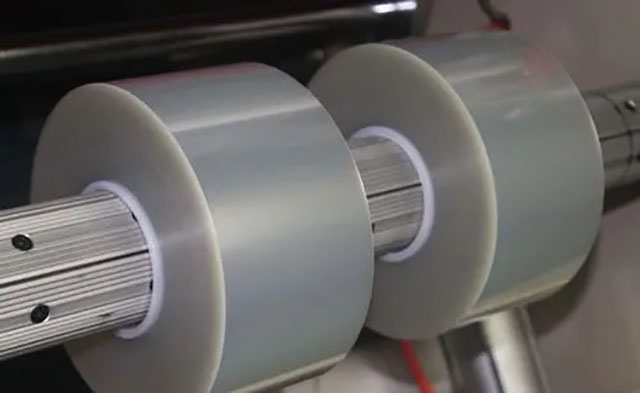
2. High-speed slitting: improve the operation efficiency of the equipment
• High rigidity structure design
◦ Servo motor direct drive tool shaft, slitting speed up to 600~1200m/min (traditional equipment usually 300~500m/min).
◦ Reinforced frame and air bearing support to reduce the impact of high-speed vibration on slitting accuracy.
• Dynamic tension control
◦ Closed-loop tension system (magnetic particle brake + tension sensor) to ensure that the film does not stretch and wrinkle during high-speed slitting (especially for ultra-thin films).
◦ Segmented tension adjustment: independent control of unwinding, traction and winding areas.
• Efficient tooling system
◦ Diamond-coated round knives or pneumatic blades can extend the service life by more than 3 times and reduce the frequency of tool changes.
◦ Automatic knife sharpening device (optional) to maintain the sharpness of the cutting edge.
3. Production process optimization
• Online automation
◦ Linked with upstream extruder/coater and downstream packaging machine to form a continuous production line and reduce intermediate handling.
◦ Docking with MES system to monitor output, fault, energy consumption and other data in real time.
• Slitting strategy optimization
• Multi-tool simultaneous slitting: multiple strips are slitted in a single time (e.g., 10×150mm for 1.5m wide film slitting) to improve the output per unit time.
• Variable width slitting (servo tool holder required): the same roll film can be switched to different widths according to the order requirements, reducing the downtime of order change.
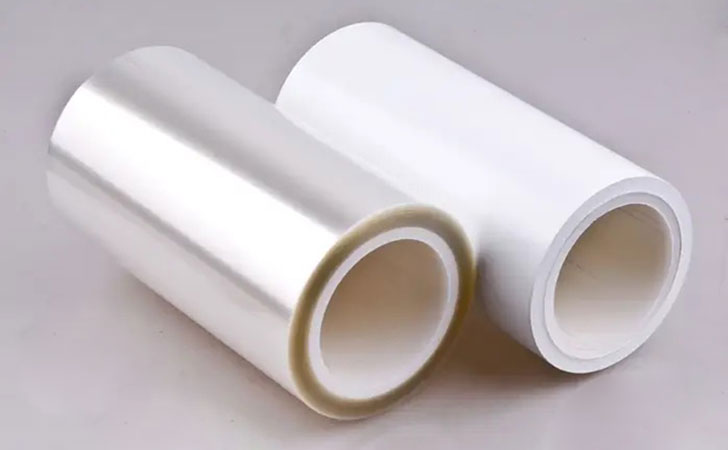
4. Maintenance and training
• Preventative maintenance
◦ Lubricate the guide rails regularly and check the belt tension to avoid mechanical wear under high-speed operation.
◦ Use vibration monitoring systems to predict bearing failures.
• Operator training
◦ Focus on emergency stops, parameter fine-tuning, and exception handling (e.g., rapid recovery from film breakage).
5. Comparison of applicable scenarios and benefits
| scenario | Traditional slitting machine | One-button high-speed slitting machine |
| Roll change time | 10~15 minutes | 2~3 minutes (automatic roll change) |
| Slitting speed | 300~500m/min | 600~1200m/min |
| Daily output (8 hours) | About 5 tons | About 8~12 tons (60%~140% increase) |
| Operator needs | 2 people | 1 person (multiple devices) |
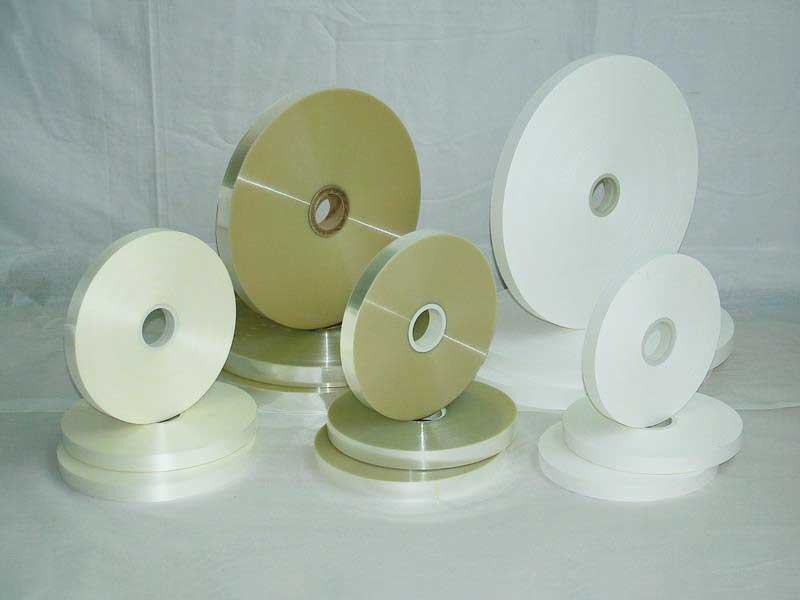
summary
Through one-button operation + high-speed slitting technology, the film slitting machine can achieve:
1. Efficiency improvement: the speed is doubled, and the order change time is reduced by 80%;
2. Cost reduction: both labor and scrap rates are reduced;
3. Flexible production: quick response to small batches and multi-specification orders.
Selection suggestion: Priority should be given to models with servo drive, automatic tension control and Internet of Things interfaces to meet the needs of future intelligent upgrades.
Recent Post
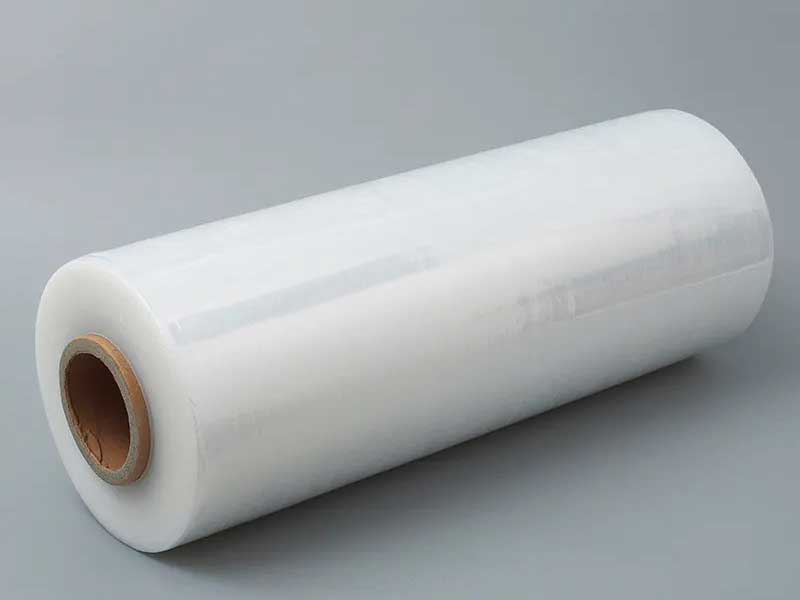 Ultra-thin films, composite films, metal films – the wide applicability of film slitting machines16. April, 2025
Ultra-thin films, composite films, metal films – the wide applicability of film slitting machines16. April, 2025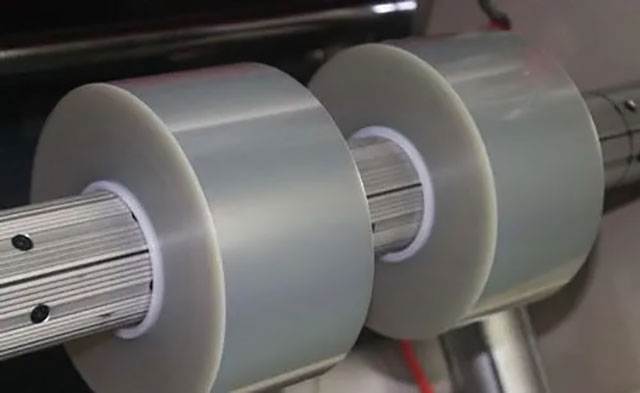 From PE to PET: How does the film slitting machine adapt to different materials?15. April, 2025
From PE to PET: How does the film slitting machine adapt to different materials?15. April, 2025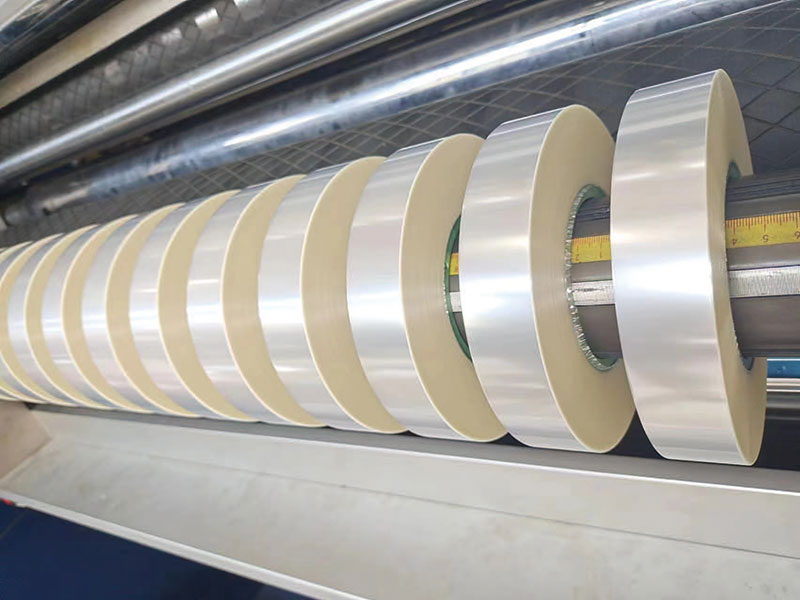 Tension control + automatic deviation correction: the secret of the stable operation of the film slitting machine14. April, 2025
Tension control + automatic deviation correction: the secret of the stable operation of the film slitting machine14. April, 2025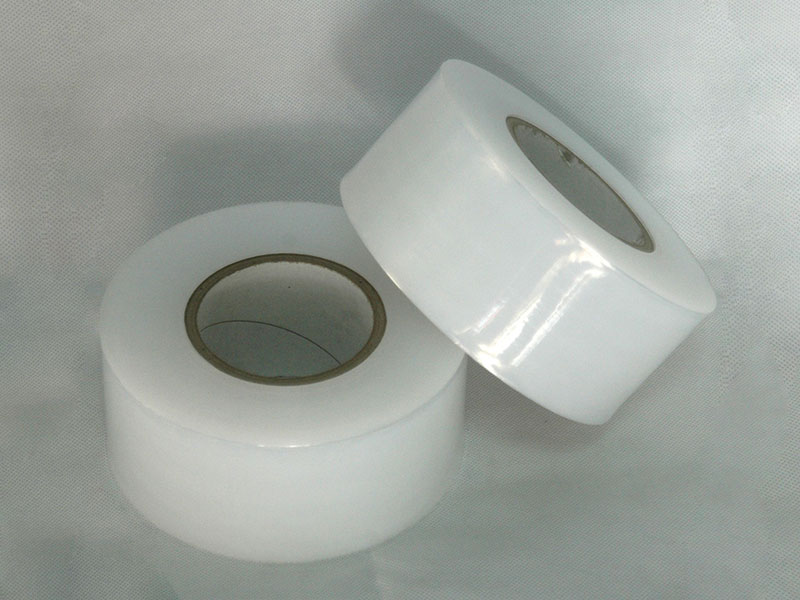 Damage-free slitting! How does a film slitting machine ensure that the edge of the material is smooth and burr-free?12. April, 2025
Damage-free slitting! How does a film slitting machine ensure that the edge of the material is smooth and burr-free?12. April, 2025
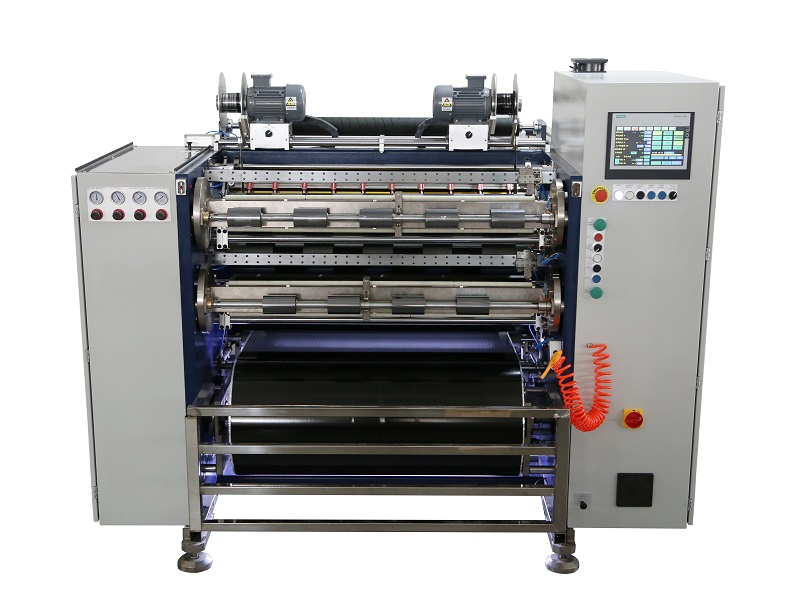 Fully Automatic TTR Slitter RSDS8 Plus
Fully Automatic TTR Slitter RSDS8 Plus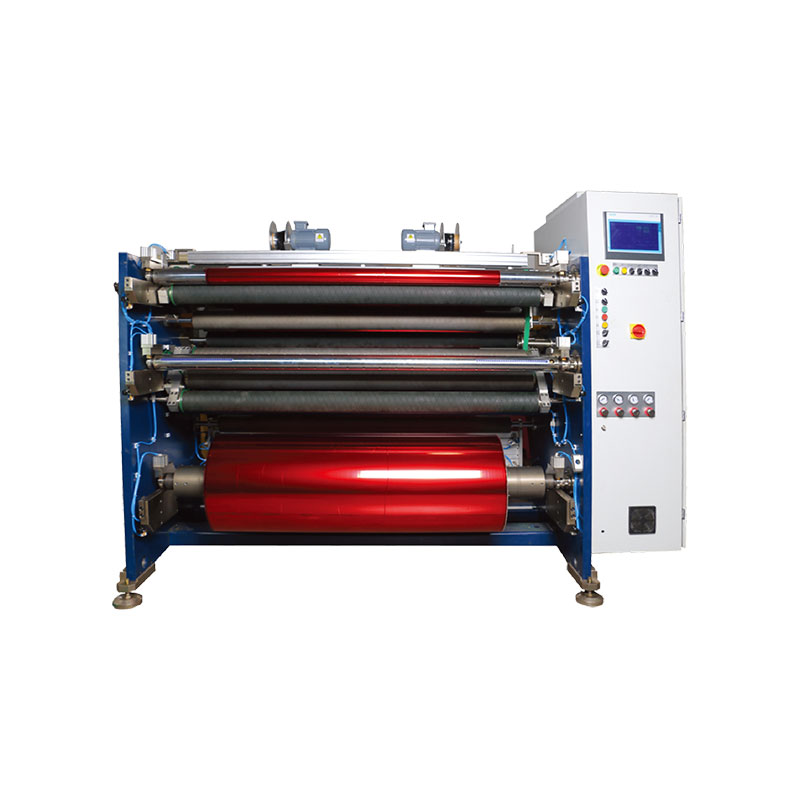 Hot Stamping Foil Slitter 1600mm
Hot Stamping Foil Slitter 1600mm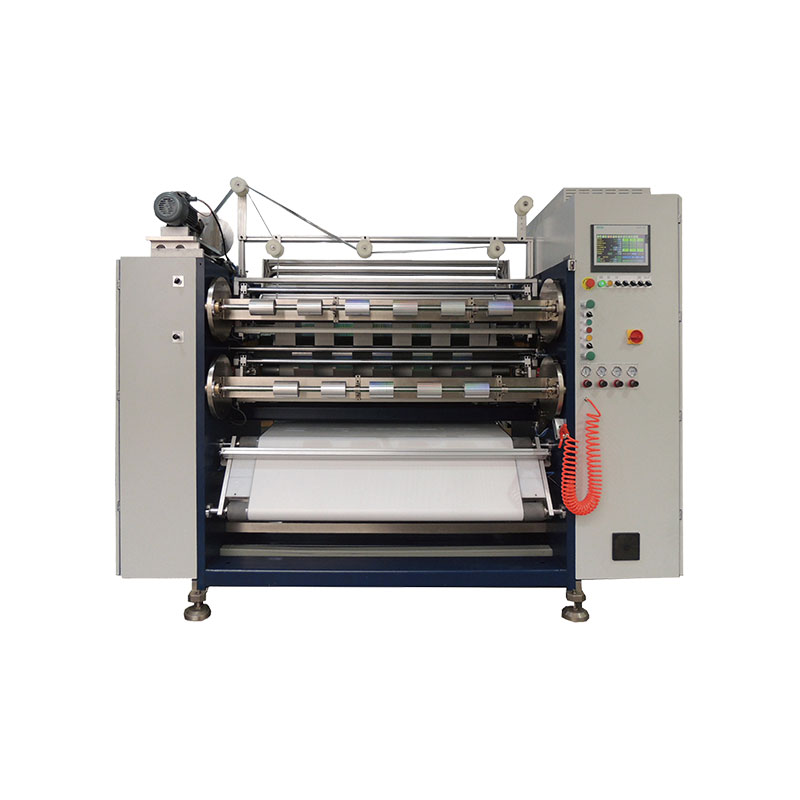 Hot Stamping Foil Slitter (4 Shafts)
Hot Stamping Foil Slitter (4 Shafts)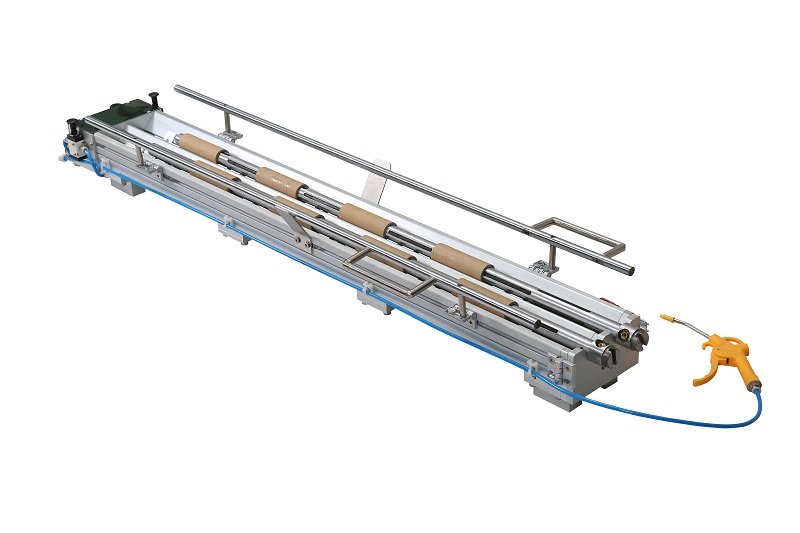 Paper Core Loading Machine
Paper Core Loading Machine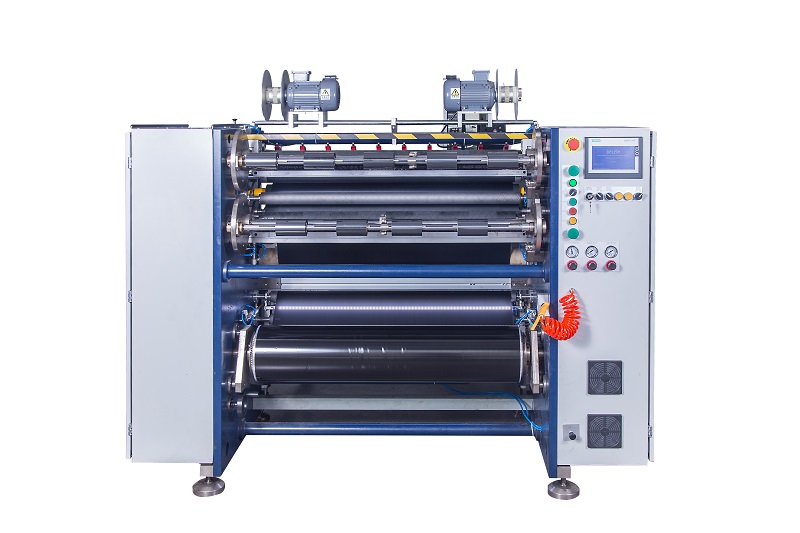 Semi-Auto TTR Slitter RSDS2 Plus
Semi-Auto TTR Slitter RSDS2 Plus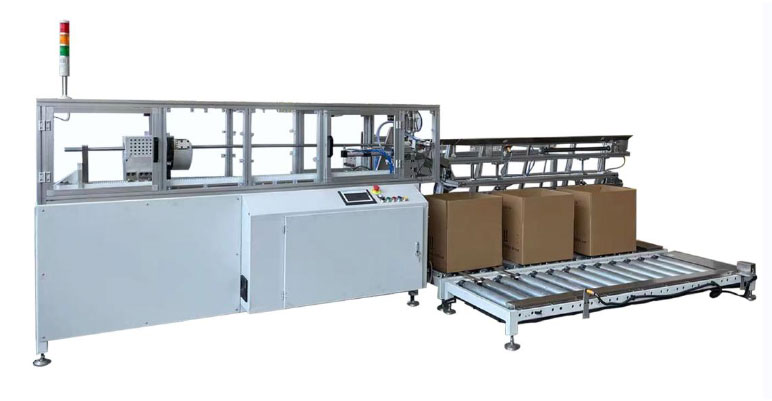 Auto Paper Core Cutter
Auto Paper Core Cutter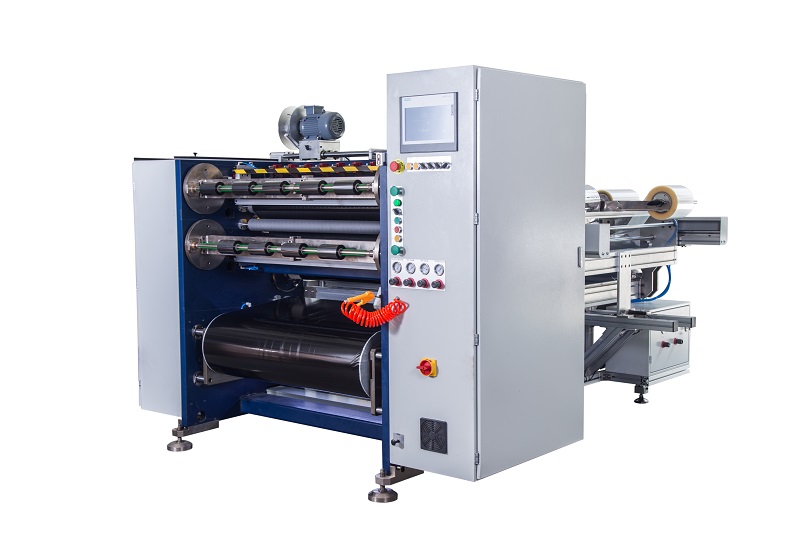 Semi Automatic TTR Slitter RSDS5 Plus
Semi Automatic TTR Slitter RSDS5 Plus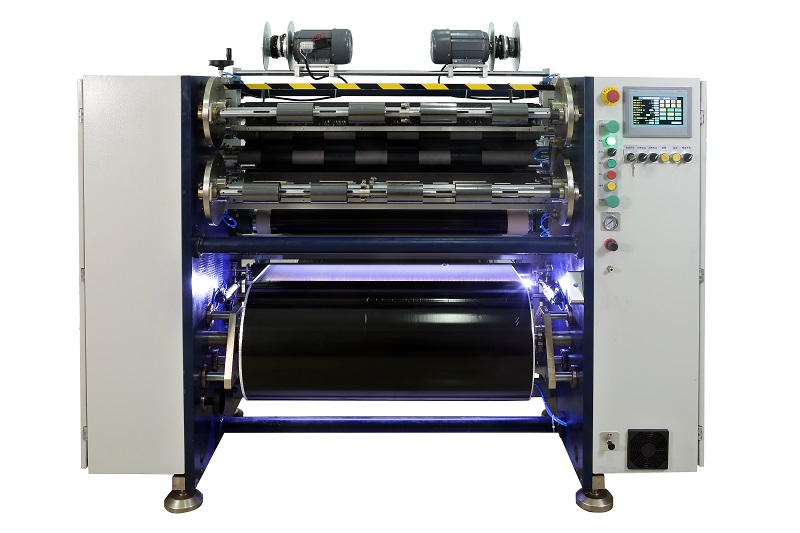 Manual TTR Slitter RSDS2
Manual TTR Slitter RSDS2





